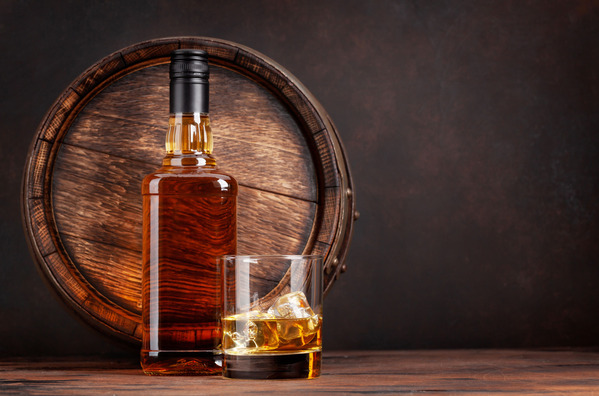Last week I made several presentations at the MoneyShow in Orlando. I enjoy shows like this, where I can meet you, my subscribers, and get information on other investment ideas. With the stock bear market this year, many investors wanted information about alternate investment ideas.
Investing in whiskey barrels or casks has become a hot idea, so I spent time with experts in the field, learning the pros and cons.
While it sounds interesting – and I’m doing it myself – there are some things to look out for…

Let’s start with the good stuff (not including the fact you get to invest in whiskey). You can buy a cask of bourbon, Irish whiskey, or Scotch whisky for roughly $3,000 to $10,000, a reachable amount for many investors. Whiskey is a hot commodity, producing annual returns in the mid-to-high teens, which means a double of your investment in three to five years.
I was surprised to learn about the potential for bourbon. Bourbon whiskey can only be produced in the U.S.; however, it has become a worldwide hit, with drinkers around the globe eager to try our bourbons. Whiskey distillers are working hard to satisfy domestic, let alone international, demand, so the demand curve for barrel investors looks very attractive.
I like to say “barrels,” but the whiskey experts I talked to insist the correct term is “casks.” I think that applies more to Irish whiskey and Scotch whisky.
Overall, it appears that whiskey casks offer excellent investment opportunities. So let’s look at the negatives.
For one thing, the whiskey investment market is scorching and unregulated. As a result, a lot of new sellers are jumping into the whiskey-selling business to make a quick buck.
When you buy a cask, you get a certificate of ownership with the number and location of the barrel. That will be your barrel. A couple of things could turn your investment sour. (And not the good kind, like a whiskey sour). If the seller disappears after a few years, you may have a lot of trouble selling to realize your profits—even though you are the owner of record of some whiskey in the barrel. Even worse, you may be scammed into buying a non-existent barrel. In that case, you would be out of your entire investment.
Don’t jump into whiskey investing through an email ad or telemarketing call. You need to verify that the seller is legitimate and committed to the whiskey trading game for the long term.
At the MoneyShow, I spent time with the CEO of OENO Futures, the company I use for fine wine investing. I spent several hours getting information about the whiskey house they partner with and recommend.
I hope that by this week, I will have my first couple of casks purchased. I will go for a bourbon barrel and an Irish whiskey cask.





